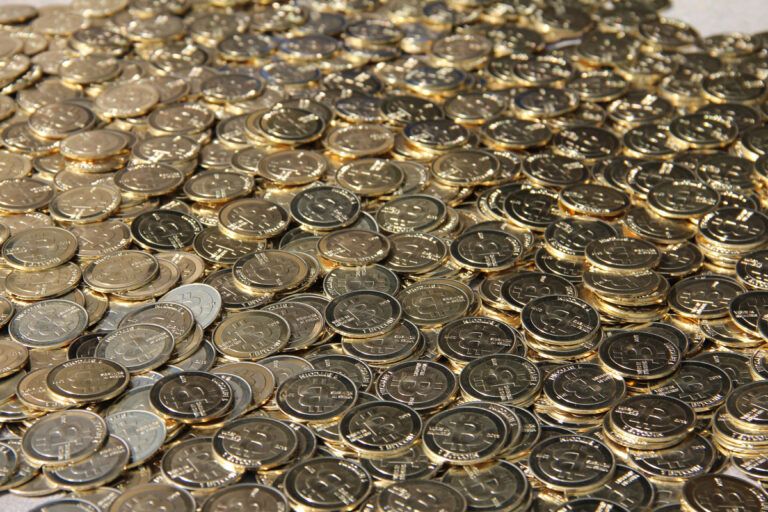On Thursday, billionaire tech investor Tim Draper, co-founder and managing director of venture capital firm DFJ, during an interview with CNBC's closing Bell, reiterated the various benefits of Bitcoin (BTC) over fiat currency, and in particular, explained why he thinks that Bitcoin is “the most secure place to store your money.”
Draper started by listing the features of Bitcoin that allow it to be a better currency than fiat currency:
- more secure;
- decentralized;
- more effective;
- more useful;
- global;
- open to everyone (“banks the unbanked”);
To illustrate what he means by “banks the unbanked”, Draper gave the example of someone sending money to their family in the Philippines or in Mexico with very little or no friction. To understand what he means better, we have to remember that around 11 million undocumented immigrants (mostly from Mexico) currently live in United States, and many of these people either are too afraid to open a U.S. bank account (for fear of getting reported to the immigration authorities) or are unable to get one (since many U.S. banks refuse to open a bank account without official forms of US ID documents that require the holder to have a valid residence visa).
Although these undocumented immigrants can (and do) use cross-border money transfer services such as Western Union, the fees can be quite high. According to a report in Bloomberg, the World Bank estimates that these fees can be as high as 10% of the amount being sent in the case of sub-saharan Africa.
Next, Draper started explaining what he means by “more secure”:
Right now, your banks are being attacked all the time. The hackers are poking holes in your banks and going after your fiat money. And the bankers are pounding away trying to keep the hacks away, but they are getting hacked all the time. No-one has ever hacked the Bitcoin blockchain. It is the most secure place to put your money. And so, as a store of value, it is a great place to be.
And if you’re in Argentina or Venezuela or Nigeria, you know that your currency is going to fall 30 percent every year, because, I mean, those countries tend to implode about every year. And people lose their fortune. Well, if part of your fortune is put into bitcoin, you’re not going to lose your fortune.
Draper has been very bullish on Bitcoin since 2014, and a few weeks ago, as reported here, he predicted that the price of Bitcoin would reach $250,000 by 2022. Therefore, it might seem wise to take everything he says with a grain of salt. So, is it true that “your banks are being attacked all the time”?
Well, we don’t know exactly how many hacking attempts, successful or otherwise, there are on banks because very often such crimes deliberately go unreported either for fear of causing panic amongst members of the public, which could result in people rushing to withdraw all the money in their accounts, or to avoid giving encouragement to potential hackers. However, from what we regularly hear from cyber security firms, cyber theft attempts are on the rise, and it is not clear how much the banks can do to protect themselves. For example, in January 2015, when cyber crime was less common and sophisticated than today, according to a report in The Guardian, the Bank of England (the central bank) “warned banks in the UK that they were facing an ‘ever-present, ever-evolving threat’ from hackers and cybercriminals, and should expect that attempts to penetrate their networks would be successful.”
Of course, in many developed countries, there are protections for bank customers in case of a cyber attack on a bank that results in loss of customers’ funds — at least up to a certain amount (GBP 85,000 in the UK). But if we are talking about the global stage, then we have to admit that what Draper says about banks could be true, and in various parts of the world, especially those without a strong banking system, you could potentially lose all your savings if you kept all your money in a bank that was subject to a cyber attack.
However, it is equally that crypto exchanges can also get hacked, as we saw, for example, with the attacks on Mt. Gox and Coincheck. So, when Draper says that holding Bitcoin is the most secure way to store your money, given that he himself lost quite a few bitcoins as a result of the attack on the Mt. Gox exchange, he must be assuming that the owner of the coins is smart enough to keep control of his/her bitcoin wallet and ideally keeping them in cold storage, for example, using a hardware wallet, such as the Ledger Nano S. And careful enough not to lose the wallet or the recovery phrase that provides access to it.
Feature Image Credit: “bitcoin” by “Steve Garfield” via Flickr; licensed under “CC BY 2.0”








